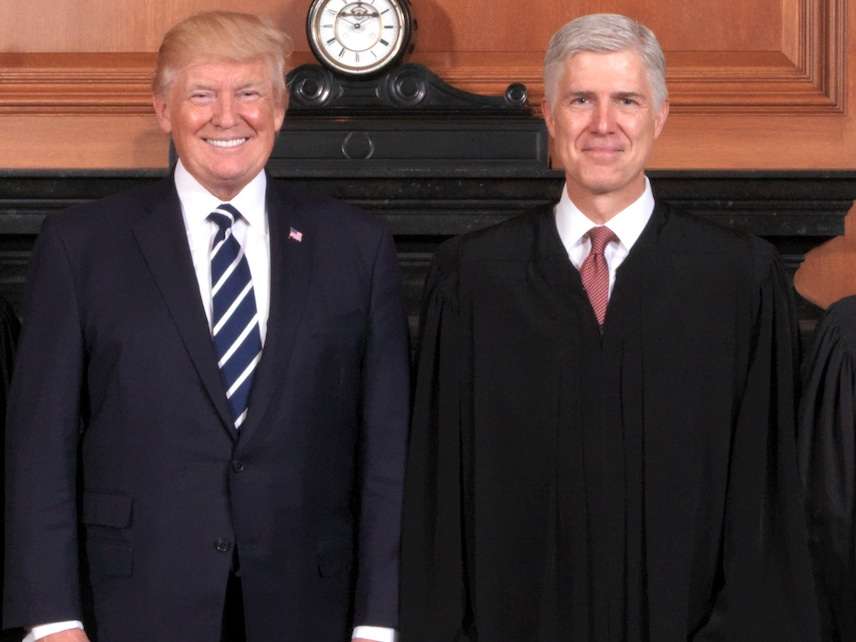Trump Administration Lawyer Pummeled by Sotomayor and Gorsuch in Cellphone Tracking Case
"Most Americans, I think, still want to avoid Big Brother."

Fans of the Fourth Amendment got a rare treat today at the U.S. Supreme Court. During oral arguments, both the liberal and conservative sides of the bench delivered a thorough pummeling to the government lawyer charged with defending the practice of warrantless cellphone data collection and tracking.
At issue today in Carpenter v. United States was whether the FBI violated the Fourth Amendment when it obtained, without a search warrant, 127 days' worth of historical cellphone records about a suspected armed robber named Timothy Carpenter. Thanks to those records, the government identified the cell towers that handled Carpenter's calls and then proceeded to trace back his whereabouts during the time periods in which his alleged crimes were committed.
According to Michael R. Dreeben, the deputy solicitor general in President Donald Trump's Department of Justice, this sort of warrantless law enforcement activity is perfectly constitutional.
That stance, however, evidently did not sit well with Justice Sonia Sotomayor, who came out swinging against the government lawyer. "Most Americans, I still think, want to avoid Big Brother," she informed Dreeben. "They want to avoid the concept that government will be able to see and locate you anywhere you are at any point in time."
Sotomayor then suggested that the government's position in the case was at odds with the bedrock protections secured by the Fourth Amendment. "The Constitution protects the rights of people to be secure," she observed. "Isn't it a fundamental concept, don't you think, that that would include the government searching for information about your location every second of the day for months and months at a time?"
Shortly after this drubbing by Sotomayor, Dreeben found himself on the receiving end of a verbal thrashing by Justice Neil Gorsuch. "It seems like your whole argument boils down to if we get it from a third-party [such as a cellular service provider] we're okay, regardless of property interest, regardless of anything else. But how does that fit with the original understanding of the Constitution and writs of assistance?" Gorsuch pressed.
"You know," he told Dreeben, "John Adams said one of the reasons for the war was the use by the government of third parties to obtain information." The British forced those third parties "to help as their snitches and snoops." Why isn't today's warrantless cellphone snooping, Gorsuch demanded, "exactly what the framers were concerned about?"
In other words, after charging the government lawyer with ignoring the original meaning of the Fourth Amendment, Justice Gorsuch then all but accused that lawyer of dishonoring the memory of John Adams. I suspect that today will not go down as Dreeben's all-time favorite day in federal court.
It is never a good idea to try and predict the outcome of a Supreme Court case based on the tenor of the oral arguments. But today's events do at least demonstrate that the Fourth Amendment still has a few fans left on the High Court.


Show Comments (51)